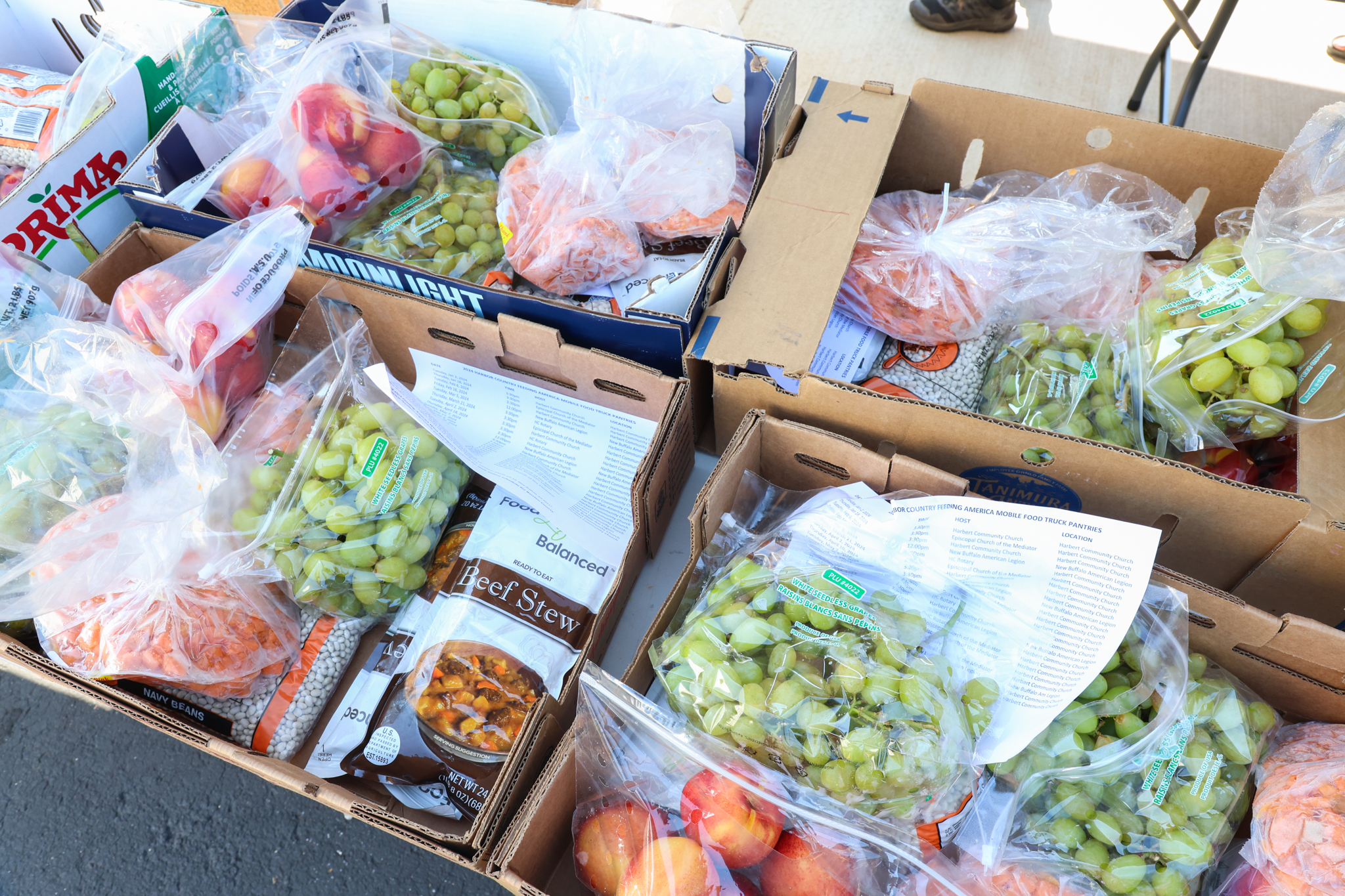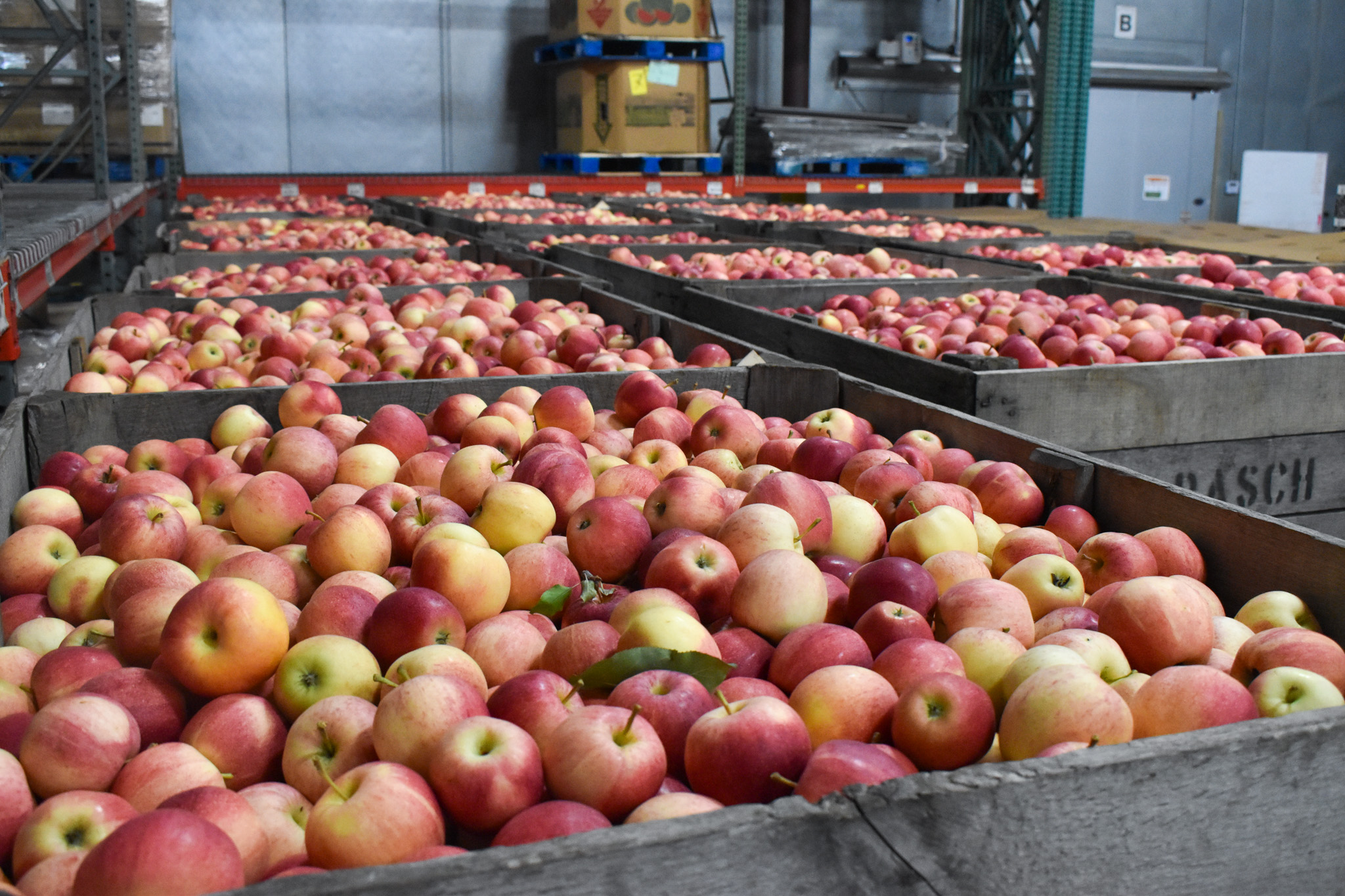
Food is more than just calories. Proper nutrition and a balanced diet give us the energy we need to accomplish many things in our daily lives. When people have access to nutritious food and a balanced diet, they can take care of themselves and their families, work more effectively, avoid developing chronic conditions, have the opportunity to engage in society more often, and not feel isolated.
When it comes to our health, there is no doubt about the correlation between what we eat and how we feel. Food security is considered a social determinant of health, which means that people’s diets can “have a major impact on people’s health, well-being, and quality of life.”
We have seen tenfold the benefits of nutritious food through stories from neighbors like Amanda, a Grand Haven mother. Amanda turned to a local food pantry, Love in Action in Grand Haven, when she needed food for her family. Having access to those food resources impacted her life in major ways, including improving her children’s and husband’s health, strengthening her family’s relationship with food, and sharing time as a family through cooking meals together.

“Because of the type of food that Feeding America provides, the improvements to our physical health have been tremendous and beyond what I thought we’d be capable of,” Amanda said. “I take less medication than I have in 15 years. My husband, who is older than me, takes zero medication … We are more productive and active at work, at home, and in our community. We have a sense of restored hope where we have been able to take back our dignity and our belief in what we are capable of.”
Numerous studies have shown the correlations between food security and positive individual and familial health and overall circumstances. In these studies, there was an observable connection between decreased food security and an increase in new or worsening chronic health issues. We’ll briefly talk about some of the findings of these studies with a focus on mental health, Type 2 diabetes, and maternal health to illustrate what has always been true — that food is more than just a meal.
Food insecurity and mental health
A meta analysis published in the Cambridge University Press was conducted to determine more about a possible connection between food insecurity and depression, stress, and anxiety. Through this review, researchers concluded, “Food insecurity has a significant effect on the likelihood of being stressed or depressed. This indicates that health care services, which alleviate [food insecurity], would also promote holistic well-being in adults.”
Additionally, in “Food Insecurity and Psychological Distress: A Review of the Recent Literature”, researcher Candice Myers set out to examine recent studies discussing the link between food insecurity and psychological distress. “The studies reviewed established a significant and positive association between food insecurity and psychological distress,” she wrote. There were even some studies within the meta-study that showed “SNAP played a buffering role in the relationship between food insecurity and psychological distress”.
Food insecurity and Type 2 diabetes
In “Food Insecurity and Diabetes: Overview of Intersections and Potential Dual Solutions” the authors explored the relationship between food insecurity and diabetes, including Type 2 diabetes, which is a leading cause of and contributor to death in the United States.
They found that, “Food insecurity is a potent risk factor for the development and progression of diabetes” and that “food insecurity contributes to disparities in diabetes outcomes by impacting diabetes prevention and management” through factors like diet quality, competing demands, absenteeism, glycemic control, and more.
As an example in our community, neighbor Lynda heard about mobile food pantry distributions in 2024 when a church friend suggested she attend. She now relies on fresh produce and dairy products from Feeding America West Michigan to help her stay healthy and keep her Type 2 diabetes in check.

“This food is an answer to prayers,” she said at a recent food distribution in Osceola County. “It’s just good stuff — fruit and vegetables and usually a gallon of milk. We get potatoes all the time and cottage cheese. I still have to buy stuff, but this really helps tremendously.”
Food insecurity and maternal and neonatal health
According to “Pregnant and hungry: addressing food insecurity in pregnant women during the COVID-19 pandemic in the United States”, “women are disproportionately affected by food insecurity, with single mothers bearing the largest burden.” Data from 2019 reveals that “approximately one-third of single expectant mothers interviewed for the survey reported food insecurity.” Food insecurity can exacerbate existing conditions in women who enter pregnancy, serve as a barrier to beneficial assistance through diet therapy and weight management, increase depressive symptoms and chronic stress, and affect the diets of newborns and infants due to limited foods and stress that diminishes the quality of breastmilk. This can also impact the short-term and long-term health of the child.

Food security is key in helping us live our best lives
When an individual or a family experiences food insecurity, there are a number of negative health outcomes that may follow. Although we only discussed a few specific conditions, it is clear that food security is a key component to good health.
It’s crucial to understand that healthy, nutritious food is essential for a thriving community. The studies discussed are only the tip of the iceberg when it comes to the many connections between food security and quality of life. Food security is food on the table, but it’s also peace of mind and the opportunity to thrive.
